Array of Things Governance & Privacy Policies
The Array of Things project and its researchers value privacy, transparency, accountability, and openness. We have worked with the city, the public, and legal experts to create governance and privacy policies that reflect these principles.
AoT privacy and governance policies were developed initially in the second half of 2015 and reviewed through a workshop including legal, academic, ethics, and privacy experts from the City of Chicago, the University of Chicago, Indiana University's Trusted CI (NSF Cybersecurity Center of Excellence) in early 2016. Throughout the first half of 2016 a series of public meetings were held to engage Chicago residents and community groups, and after this six-month period of public comment the policies were finalized and adopted. Since that time the project has regularly reviewed the policies and found them to be effective, thus they have remained unchanged. You can download the governance and privacy policies here.
We thank the public for their valuable input during the feedback period in the spring and summer of 2016. We have published responses to all questions received online and during public engagement meetings. You can also view a final Engagement Report from Smart Chicago, summarizing the public feedback period and lessons learned from these outreach efforts.
Privacy-preseving Image Processing
The AoT privacy policy details the AoT project emphasis on privacy, transparency, and openness. AoT devices save roughly one image on an hourly basis in order to create a library of such data types, necessary to "train" image processing software. This library is protected and only available to scientists who (a) propose to develop vision applications that comply with the AoT Privacy Policy, and (b) sign a data use agreement outlining restrictions on sharing any images that could potentially identify an individual.
With the exception of the training data, no images are saved. Rather, the nodes include computers that allow scientists to run image analysis software within the nodes themselves. Once images are processed by this software, they are deleted
All of the original AoT nodes were retired in place in September 2021, having exceeded their 2-year design lifetime in some cases having operated for over four years. Many of these will be replaced by more powerful devices currently being tested at Argonne National Laboratory. Roughly a dozen of these new nodes have been installed for testing in Chicago and dozens more have been deployed around the world. Prior to the original nodes being retired, the AoT team worked with Microsoft Research, JCDecaux, the Enironmental Law and Policy Center, and other partners to design and install a network of 115 air pollution sensors in summer 2021 on Chicago bus shelters as a field-test for experimental sensors. An interactive map of these devices can be accessed here or by scanning a QR code that is placed on each of the bus shelters hosting one of these nodes. The project team also worked with five community groups from Chicago's West and South sides to identify locations for the sensors.
Information regarding all vision applications under development or in use, including links to software used, is maintained at the SAGE Applications web page
Full documentation for the SAGE/Aot Hardware and software can also be found at the SAGE DOCS web page
AoT Executive Oversight Committee
Charlie Catlett (Co-Chair)
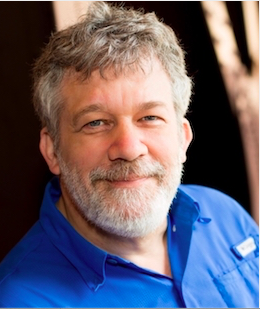
Charlie Catlett is a Senior Computer Scientist at Argonne National Laboratory. He is the Principal Investigator of the AoT project and a Co-Principal Investigator of the SAGE project. Catlett is also the founding director of the Urban Center for Computation and Data, UrbanCCD (now part of the University of Chicago's Mansueto Institute for Urban Innovation), which brings social, physical, and computational scientists together with artists, architects, technologists, and policy makers to explore science-based approaches to opportunities and challenges related to the understanding, design, and sustainable operation of cities. From 2020 to 2022 he was a Senior Research Scientist at Discovery Partners institute, a Chicago-based institute of the University of Illinois System. From 2000-2020 he was also a Senior Fellow at the Computation Institute of the University of Chicago and Argonne National Laboratory.
From 2007 to 2011 he was the Chief Information Officer at Argonne National Laboratory, and from 2004 to 2007 he was Director of the National Science Foundation's TeraGrid initiative - a nationally distributed supercomputing facility involving fifteen universities and federal laboratories. From 1999 to 2004 Charlie directed the design and deployment of I-WIRE, a dedicated fiber optic network funded by the State of Illinois, which connects research institutions in the Chicago area and downstate Illinois to support advanced research and education.
Before joining the University of Chicago and Argonne in 2000, Charlie was Chief Technology Officer at the National Center for Supercomputing Applications at the University of Illinois at Urbana-Champaign. Beginning at NCSA’s founding in 1985 he participated in the development of NSFNET, one of several early national networks that evolved into what we now experience as the Internet. During the exponential growth of the web following the release of NCSA’s Mosaic web browser, his team developed and supported NCSA’s scalable web server infrastructure.
Recognized in 2014 as one of Chicago’s “Tech 50” technology leaders by Crain’s Chicago Business and in 2016 as one of Government Technology Magazine's "Top 25 Doers, Dreamers & Drivers", Charlie is a Computer Engineering graduate of the University of Illinois at Urbana-Champaign.
Nick Lucius (Co-Chair)
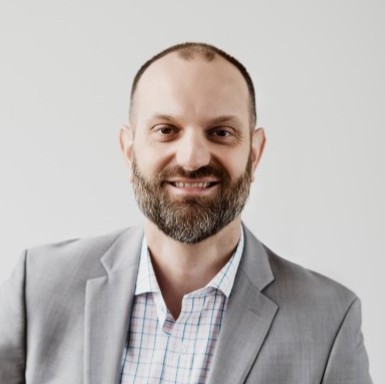
Nick is the Chief Technology Officer at the City of Chicago, Office of the Mayor. He was previously the city's Chief Data Officer and has held numerous positions in the City of Chicago, including Data Scientist in the Depratment of Innovation and Technology as well as Assistant Commissioner for the Chicago Department of Transportation (CDOT).
Prior to his work in technology, Nick held multiple legal counsel positions including at the Illinois Department of Human Services and in the City of Chicago's Department of Law. He has extensive experience overseeing large teams in diverse settings, having served three mayors, two governors, and a state legislature. His background in transportation and mobility, public safety, health and human services, and legal brings important perspectives to the AoT EAC.
Nick has also authored multiple scientific journal articles that apply data analytics methods to problems in biology and public health, and contributed to a book about privacy and the legal implications of new technologies. In addition to a law degree, Nick holds a master's in computer science and a bachelor's in psychology and political science.
Pete Beckman (Chief Architect)
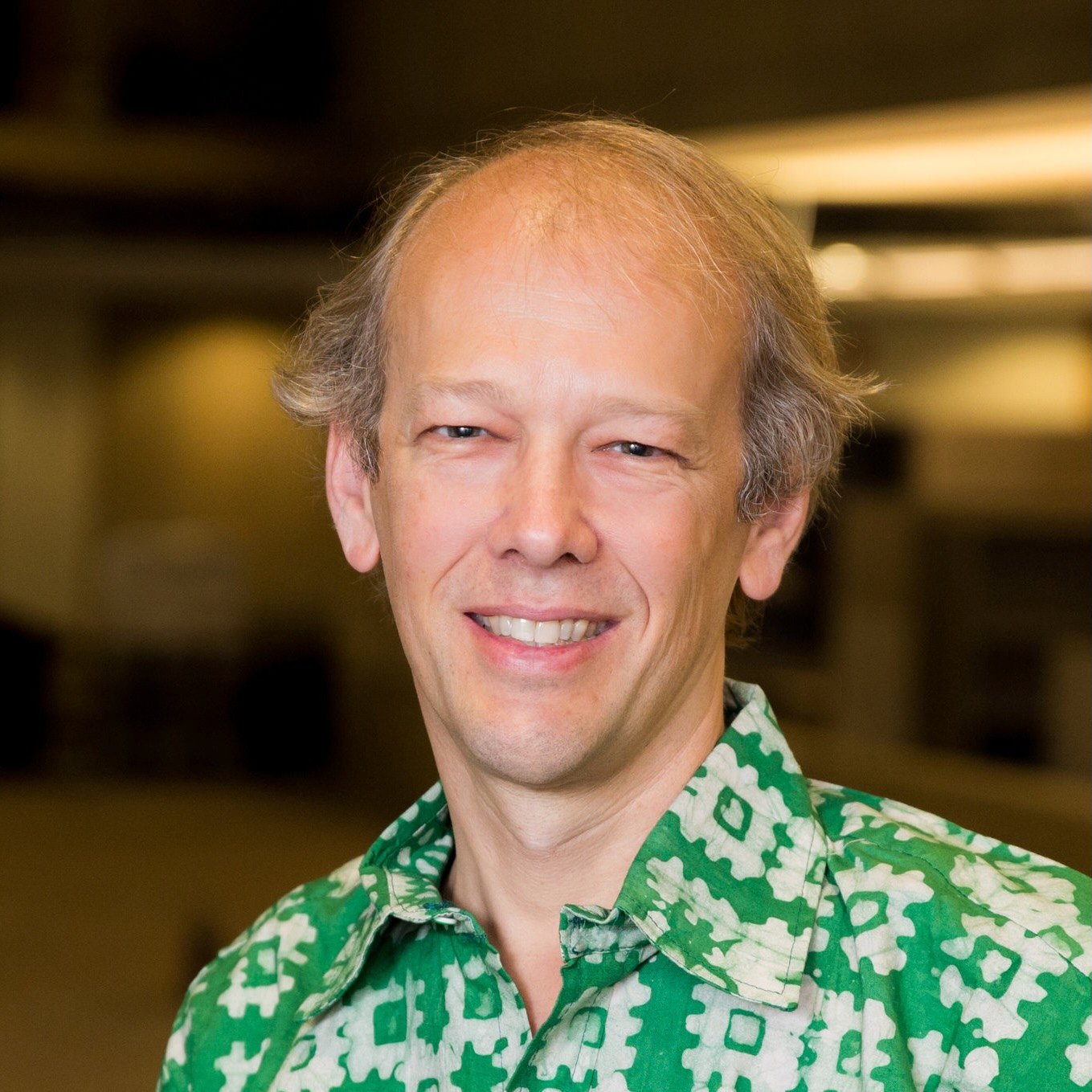
Pete is co-Director of the Northwestern-Argonne Institute for Science and Engineering (NAISE) and a distinguished fellow at Argonne National Laboratory. He is a recognized global expert in high-end computing systems. During the past 30 years, his research has focused on software and architectures for large-scale parallel and distributed computing systems. He is the chief architect for the Array of Things and principal investigator and director of the national-scale SAGE project, funded by the National Science Foundation to build a nationwide infrastructure for AI at the edge to support ecological research for the National Ecological Observatory Network and urban research for the Array of Things. Pete is the founder and leader of Argonne’s Waggle project for artificial intelligence (AI) and edge computing.
Beckman also coordinates the collaborative technical research activities in extreme-scale computing between the U.S. Department of Energy and Japan’s ministry of education, science, and technology and helps lead the Big Data and Extreme Computing BDEC) series of international workshops. He also coordinates 5G wireless research activities at Argonne.
Danielle DuMerer
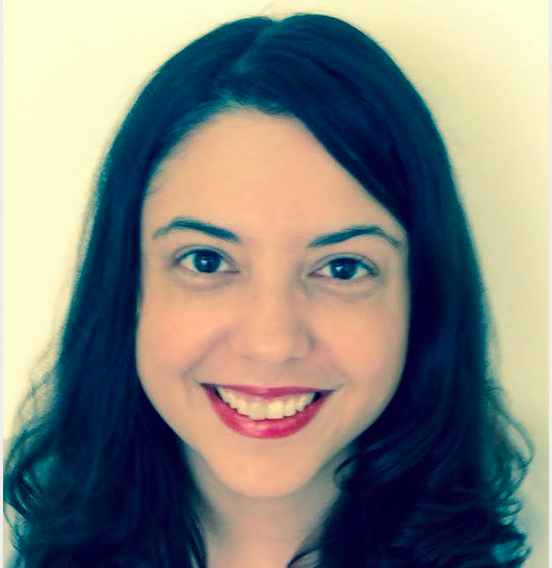
As Vice President of Technology at Chicago's Shedd Aquarium, Danielle leads the technology team at Shedd with a focus on guest and team experiences, leveraging data analytics to improve operations, and protecting information assets and systems. This entailes advancing the use of technology across the aquarium, developing its future direction, and overseeing the Shedd’s technology infrastructure, audio-visual and exhibit technologies, applications, data management, and information security.
Danielle has more than 15 years of technology management and product development experience, most recently serving as the chief information officer (CIO) for the City of Chicago. As Chicago’s CIO, she worked to improve how residents interacted with the government by creating more responsive and accessible digital services. In 2019, DuMerer was recognized as CIO of the Year by the Executives Club of Chicago, the Society of Information Management Chicago Chapter and the CompTIA AITP Chicago Chapter. She was also named one of Government Technology's Top 25 Doers, Dreamers, and Drivers. In 2018, Bloomberg Cities also named DuMerer one of seven CityLab Innovators to watch, and Statescoop named her one of the Top Women in Technology.
Before her work in government, DuMerer developed educational technology products at McGraw-Hill Companies. She also worked in the library and archives field, serving educational and not-for-profit organizations to promote equitable access to and preservation of informational resources. Danielle holds an M.S. in library and information science from the University of Maryland, College Park.
Don DeLoach
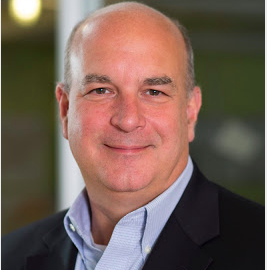
Don DeLoach is an entrepreneur, author, and board member, and a leading industry evangelist for the Internet of Things. Don is currently co-chairman of the Midwest IoT Council. He has been on the Board of the Illinois Technology Association for over 10 years. In 2015, Don won the ITA’s City Lights Award, the highest award given for the company or individual who actively and consistently supports the growth of the Illinois technology industry through leadership and/or collaboration for his work in driving IoT efforts in Chicago and the broader Midwest. Don is a frequent author and speaker about technology, especially the Internet of Things and is a contributing editor to several publications. Don is also the co-author, along with Gartner Group IoT Analyst Emil Berthelsen of the book “IoT the Organization, not the Product” due to be released in June, 2017.
As a leader for small businesses, he has been active in leading privately-held technology companies since 1999, involved with all aspects of strategy, execution, funding, M&A, and executive leadership. Most recently Don was President and CEO of Infobright, an analytics database built for networking, telecommuniciations, digital media and the Internet of Things, joining as President and CEO in May of 2010 untuil its recent sale in April of 2017. Prior to Infobright, he was President and CEO of Aleri, an industry leader in Complex Event Processing (CEP) and well as CEP-enabled solutions for treasury liquidity management and risk analysis, from early 2002 until the sale of Aleri to Sybase in early February, 2010. Prior to joining Aleri, Don was President and CEO of YOUcentric, an innovative provider of enterprise Customer Relationship Management software, until November 2001 when YOUcentric was acquired by J.D. Edwards. Prior to YOUcentric, Don spent five years at Sybase, a provider of database, middleware, and development tools, serving as the Vice President for North American Geographic Sales, Telesales, Channel Sales, and Marketing. Additionally, Don held various management and sales positions with Prime Computer, Bull Information Systems, and Hitachi Data Systems.
In other industry roles, Don served as an outsider director for Broadbeam, a Princeton based mobile middleware platform from 2002 until its sale to Mobileaware in 2006, and was Chairman of the Board of Apropos, a publicly-traded Chicago-based call center software company from 2003 until its sale to Syntellect in early 2006. He is also on the Board of the Juvenile Protective Association. In addition to Don’s numerous published works for Internet of Things, he has contributed to various financial and technology trade publications over the years and provided content for several books including; “The Handbook of Investment Technology and Investor Relations” and “Investment Management: meeting the Noble Challenges of Funding Pensions, Deficits, and Growth.”
Brenna Berman
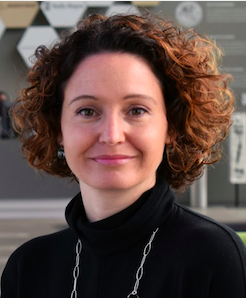
Brenna Berman is the founder and CEO of City Tech Collaborative, an urban infrastructure innovation organization that develops and demonstrates new technology in its core focus areas: buildings and other physical infrastructure, water and sanitation, energy management, and mobility.
Prior to founding City Tech, Brenna served in Chicago Mayor Rahm Emanuel’s administration, which she joined in 2011. She served as the Chief Information Officer for the City and Commissioner for the Department of Innovation & Technology (DoIT) from 2012 to spring of 2017. In that time, she focused on transforming the team at DoIT to provide the skills and expertise to implement the Mayor’s vision of data-driven resident services and of a more efficient, effective, and innovative City government. This meant adding new skills to the team to increase the focus on software engineering and analytics, improving the department’s commercial partnerships to drive savings for the City, and identifying ground-breaking civic partnerships.
During her tenure as CIO, Brenna delivered on the Mayor’s commitment to a robust open data program, integrated advanced analytics into many city departments, drove IoT innovation for the City through unique partnerships at UI LABS and the founding of the Midwest IoT Council, and, in partnership with the University of Chicago, realized the vision of urban-scale sensing with the Array of Things.
Prior to joining the Emanuel Administration, Brenna built a career promoting government innovation over 10 years at IBM, where she worked closely with government agencies in cities and countries across the world to leverage technology and analytics to improve the services they provide to their residents. She advised governments on a variety of issues, from targeting personalized services through analytics to normalizing program offerings to simplify the delivery process and make them understandable to residents. Throughout her time at IBM, Brenna tailored cutting-edge business and data models, from processes to analytic algorithms for large government organizations in order to accelerate their own modernization efforts, providing an incredibly valuable skill set for the work she continues at UI LABS.
Brenna earned her bachelor’s degree and Masters in Public Policy from the University of Chicago.
Glenn Eden
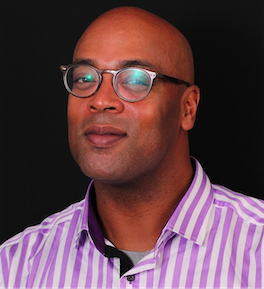
Glenn Eden is the Strategic Communications Advisor & Board Chair, Choose Chicago. He was previously the leader of Weber Shandwick Chicago’s technology practice and co-leader of the office’s corporate practice. Glenn is a multi-dimensional public relations professional with more than 20 years of experience across many different business sectors. He has developed and led integrated communications programs that reach diverse audiences with strategic messages on behalf of large companies and government organizations such as Motorola, Lenovo, Google, Gogo, Qualcomm, Mattel, Bank of America, Nuveen Investments, Johnson & Johnson, the U.S. Treasury and the City of Chicago. His deep corporate expertise includes reputation management, executive positioning, media relations and media training, issues and change management.
Glenn also has a proven track record at advising and counseling technology clients involved in the following sectors: mobile devices, hardware, software experiences, wireless connectivity and civic technology. In addition to serving as a member of the executive oversight committee for the Array of Things project, he is an advisory board member of the Illinois Technology Association’s Internet of Things Council. Glenn is a graduate of the University of Michigan with a double major in chemistry and biopsychology.
Aaron Koch
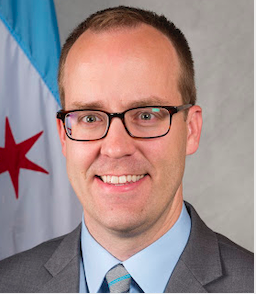
Aaron Koch is Environmental Program Director at Crown Family Philanthropies. He previously served as Chicago’s first Chief Resilience Officer under Mayor Rahm Emanuel, as the Deputy Commissioner for Sustainability in Chicago’s Department of Water Management, as a Senior Policy Advisor in the New York City Mayor's Office of Long-Term Planning and Sustainability under Mayor Michael Bloomberg, and as the Director of the Mayors’ Institute on City Design in Washington, DC. Aaron holds a Bachelor of Science in Architecture from the University of Minnesota-Twin Cities and a Master of City Planning from the University of Pennsylvania.
Lynn Osmond
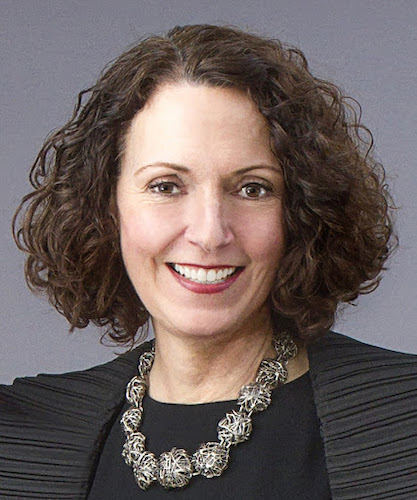
Lynn Osmond is President and Chief Executive officer of Choose Chicago. She was previously the President and CEO of the Chicago Architecture Center (CAC), formerly the Chicago Architecture Foundation (CAF), since 1996. Osmond oversaw CAC’s comprehensive program of architecture tours, exhibitions, public programs and youth education. Under Osmond’s leadership, CAC realized 400% growth in revenue and is consistently ranked among the top 10 Chicago cultural institutions. Today serves more than 670,000 people each year.
During Osmond’s tenure, CAF expanded its docent tour program which now has 450 volunteers that give 85 different tours, totaling more than 7,000 tour departures annually. It is recognized internationally as one of the leading programs of its kind. Osmond initiated Open House Chicago, a free citywide annual architecture festival that attracts more than 100,000 people annually and the popular Chicago Model, a permanent scale model exhibition of the city. In 2014 CAF launched an innovative exhibit titled City of Big Data that illustrated how Chicago is using urban data to make a better city. Osmond spearheaded the launch of the Association of Architecture Organizations that now has 165 international members.
CAC reaches more than 28,000 students annually through its youth education programs. Other education initiatives include three curricular resources for K-12 teachers and students—Schoolyards to Skylines (K-8), The Architecture Handbook (high school) and DiscoverDesign.org, a digital learning program—that are all used throughout the county.
In recognition of CAF’s contributions over the years, the American Architectural Foundation presented CAF with its 2014 Keystone Award that honors an individual or organization from outside the field of architecture for exemplary leadership that has increased the value of architecture and design in our culture. In 2005, Osmond was recognized as an Honorary Member of the American Institute of Architects. In 2002, she was awarded the Paul Berger Arts Entrepreneurship Award presented by Columbia College, and in 2009 she received the Chicago Woman Achievement Award from Chicago Real Estate Women (CREW).
Osmond serves on the boards of the Magnificent Mile, the Central Area Committee, the Chicago Loop Alliance and the International Women’s Forum. She is a member of Toronto Sister Cities, the Commercial Club, the Chicago Network, the Economic Club of Chicago, the Executives’ Club of Chicago, the Ely Chapter of Lambda Alpha International and Urban Land Institute. Osmond holds a Bachelor of Music degree from Queens University, Ontario, Canada. She is a Certified Association Executive (CAE) and a graduate of the Advanced Executive Program at the Kellogg School of Management at Northwestern University.
Steven Philpott
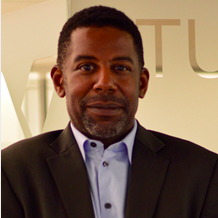
Steve works with brands to create public/private New Media for Community Development innovations that provide mutual benefit to both brands and distressed communities by deploying “supplantive” platforms that natively benefit industries seeking their own revenue growth while disrupting the norms of distressed urban communities.
Steven received a Center for Neighborhood Technology Social Venture Fellowship in 2014 Steve has been a frequent guest on WVON’s MPR Report and the Roland Martin talk show. Steven received a Bachelor's degree in Computer Science and Business Administration from National Louis University and is veteran of the United States Marine Corps, member of the Liberty Alliance for federated internet identity, and International Association of Privacy Professionals.
Steven is known for the following significant accomplishments:
- Civic Tech Apps Competition – an annual competition bridging community ideas with technologists to create apps that solve local issues.
- Aspire Network – production of over 500 shows (Soul Café @ Negro League Café & Eclectic Rhythms @ Mix) in local venues and via an online channel. These events increased venue foot traffic, revenues and employment.
- Violence Stops Here – annual Online Contests for Youth Culminating in a live showcase and contest for $10,000 in Scholarships for Creative Excellence.
- SoundBox Music – an online music app featuring music and promotions from local producers.
- Chicago’s Responsible Retailer Initiative – A partnership between City of Chicago and local liquor retailers to improve citizenry and promote investments in youth based entertainment.
- PassGo – An online app for improving retail corridors in distressed areas by enabling development of vacant and abandoned properties via crowd sourcing
- CrimeScene: Let Hope Rise – co-deviser of the highly acclaimed play series featuring the stories of Chicagoans and their experience with crime and hope for a better city. Originally produced in Wicker Park Play travels annually to six Chicago Parks each summer.
- LFP Design Team – collaboration with a team of architects, technologist and artists to develop a world-class Lighting Framework Plan for Chicago’s River, Iconic Architecture, Lower Wacker, El structures and Bridges.
Clients have included Chicago Beverage Systems, Reyes Beverage Group, American Express, Merrill Lynch, Northeast Utilities, Blue Cross Blue Shield of Michigan, University of Virginia School of Pharmaceutics & UAL- United Airlines. In his spare time Steve enjoys creating animation and is an avid runner. Steve lives in the Chicago area with his wife Donielle and children Donovan and Sarah.
Dan Reed
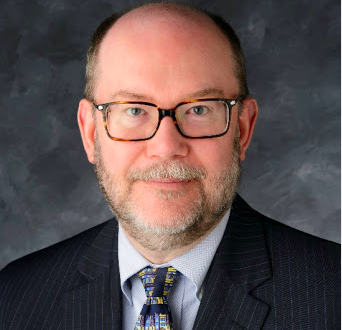
Daniel A. Reed is a Presidential Professor and Professor of Computer Science and Electrical and Computer Science at the University of Utah, where he served as Senior Vice President for Academic Affairs from 2018-2022. In 2019 Reed was appointed to the National Science Board, which establishes policies and priorities of the National Science Foundation and advises the President and Congress on policy matters related to science and engineering and education in science and engineering.
Reed came to the University of Utath from the University of Iowa, where he was the computational science and bioinformatics chair and a professor of computer science, electrical and computer engineering and medicine. From 2012 through 2017, he served as the school’s vice president for research and economic development.
Dan is a former corporate vice president and technology policy leader at Microsoft, the founding director of the Renaissance Computing Institute at the University of North Carolina at Chapel Hill and was the director of the National Center for Supercomputing Applications at the University of Illinois. His most recent scholarship has focused on challenges and opportunities related to cloud and edge computing in both academic and corporate research settings.
Reed has served on many national committees, including as chair of the U.S. Department of Energy’s Advanced Scientific Computing Advisory Committee; the steering committee for the National Science Foundation’s Midwest Big Data Hub; the U.S. President’s Council of Advisors on Science and Technology; and the President’s Information Technology Advisory Committee. He also chaired the board of directors for the Computing Research Association, which represents doctorate-granting computer science departments in North America and currently serves on its government affairs committee.
A graduate of Missouri University of Science and Technology, Reed earned his master’s and doctoral degrees in computer science from Purdue University.
Ari Scharg
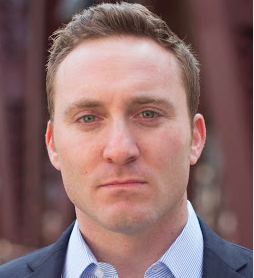
Ari Scharg is a Partner at Edelson PC and Co-Chair of the firm’s Case Development and Investigations Group. His practice focuses on privacy and security issues arising from emerging surveillance technologies, including facial recognition applications and geolocation tracking programs. He works closely with the forensic engineers in Edelson’s technology lab to test a wide range of Internet of Things products and devices for data security and privacy vulnerabilities. Ari also chairs the Illinois State Bar Association’s Privacy and Information Security Section, sits on the Board of the Digital Privacy Alliance, and serves as an Observer to the Uniform Law Commission’s Identity Management in Electronic Commerce Study Committee.
Elissa Tenny
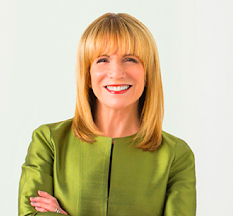
Elissa Tenny is the 15th executive and first woman to lead the School of the Art Institute of Chicago (SAIC) in its 150-year history. She became President in July 2016, assuming broad responsibility for overseeing the School’s world-renowned academic programs, strategic direction, and operations across all facets of the institution. A career-long proponent of art and design education and the liberal arts, Tenny is an advocate of interdisciplinary practice, of diversity in higher learning, and of the role higher education plays in society and the world at large.
Tenny joined SAIC in 2010 as Provost and Senior Vice President of Academic Affairs, in which capacity she stewarded the School’s educational mission, including academic affairs, student affairs, and technology concerns among many other areas. Tenny’s signature initiatives as Provost include establishing the Earl and Brenda Shapiro Center for Research and Collaboration; implementing the School’s strategic plan, which identified priority areas of focus for enhancing academic programming, creating organizational efficiencies, and developing diversity initiatives; realizing a library renovation while bringing a sense of focused collegiality to the daily operations of the School; and co-chairing SAIC’s 150th Anniversary celebrations throughout the 2015–16 academic year.
Tenny came to SAIC from Bennington College in Bennington, Vermont, where she served as Provost and Dean from 2002–10. At Bennington she successfully promoted interdisciplinary and integrative scholarship, crafting strategic plans for the college, enhancing curriculum planning, and creating faculty development initiatives.
Prior to joining Bennington, Tenny served in a variety of roles at The New School in New York City from 1975 to 2002, eventually holding the positions of Acting Dean (1998–2001) and Vice Dean (2001–02). The New School houses the Parsons School of Design, and Tenny’s focus there included promoting diversity, quality, and creativity in academic programming and student services.
In addition to her long list of outstanding career accomplishments in academia, Tenny holds a Doctor of Education from the University of Pennsylvania, a Master of Arts in Media Studies from The New School, and a Bachelor of Arts in Business Administration from Stockton University.
Karen Weigert
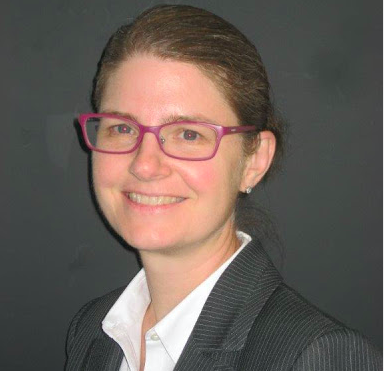
Karen Weigert is Vice President for Business Strategy and regional Operations at Slipstream, where she leads their Chicago office and strategic initiatives. Karen and her teams are accelerating the change needed to move to an equitable, clean energy economy.
Slipstream is a nonprofit that tests, delivers and scales next generation energy programs and products. With over 150 people across 13 states, in 2018 Slipstream worked with innovative clients and partners to save over $50 million and 280 thousand metric tons of carbon.
Transformation needs leaders who can work across sectors. Addressing climate change requires nothing less. Karen has delivered new ideas and strong teams as the first Chief Sustainability Officer for the City of Chicago, as a strategy consultant at McKinsey, as a documentary film writer and producer for Carbon Nation, as a new product steward at ShoreBank, as an investment banker at Goldman Sachs, as an expert at the Chicago Council on Global Affairs, and as a business builder at Slipstream.
Ultimately change happens when people can see the future and their role in it. Through speaking engagements including before 40,000 people at the Chicago March for Science, interviews with CBS This Morning, Chicago Tonight and NPR, and commentary in the Wall Street Journal, Chicago Tribune, Crain’s and others Karen's efforts help shape today and tomorrow.
AoT Annual Reports
At the close of each Federal fiscal year (September) the AoT project produced annual reports. These are available after a period of review by the National Science Foundation, thus will typically appear at the end of each calendar year. These parts are cumulative so that when read stand-alone they include both new activities and accomplishments and key accomplishments to date. As such, there is some duplication from year to year and the most recent reports are the most comprehensive.